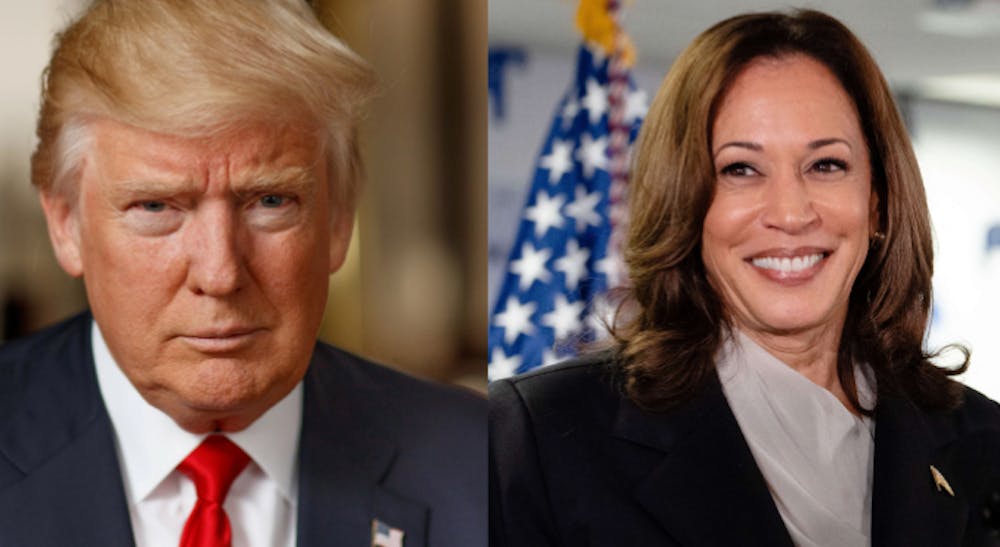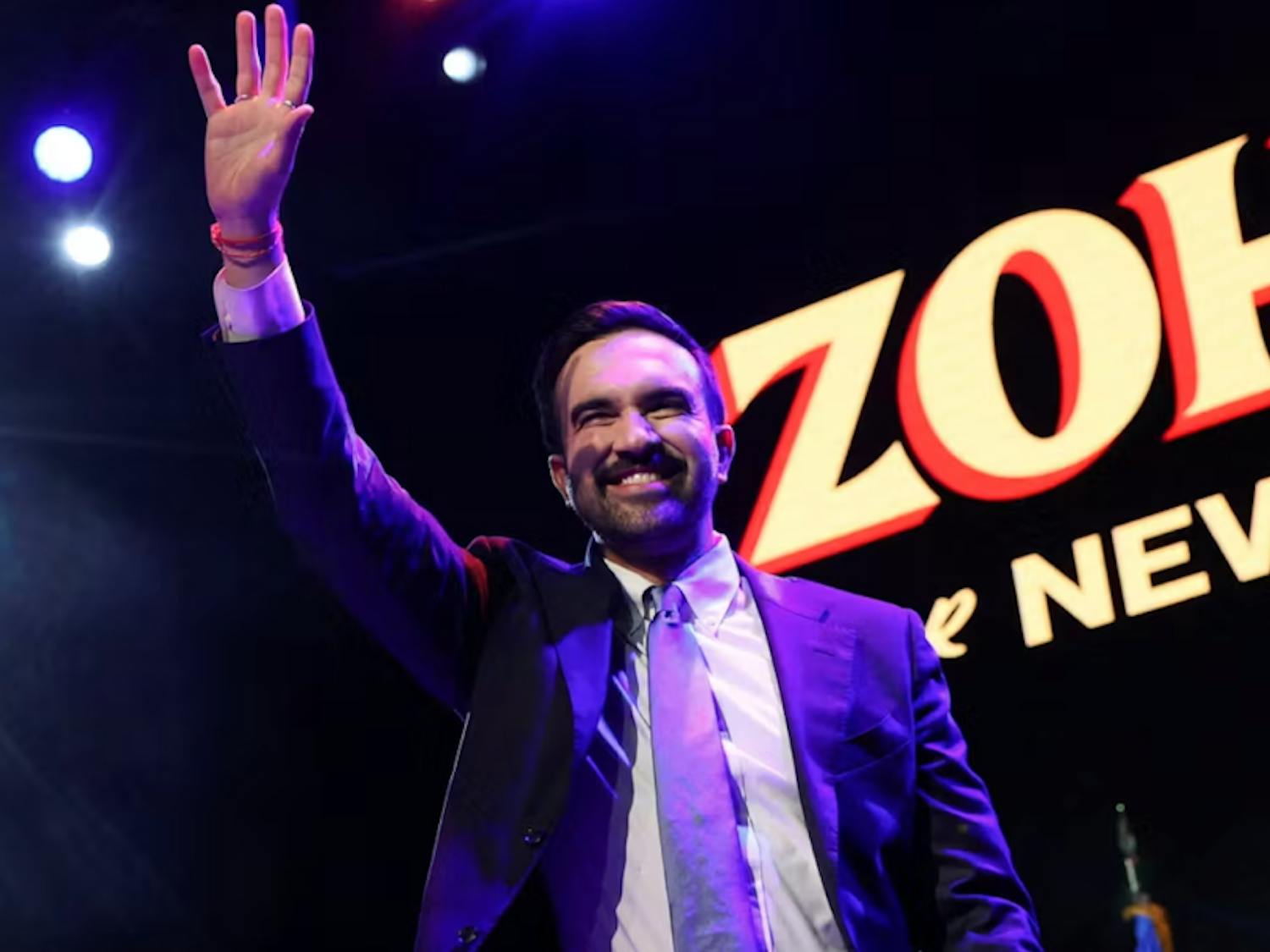November 5th 2024. Phones open to the vote count, TVs stuck on CNN, and every American waiting. Many hold on to a small sliver of hope. However, once 11 pm hit, it was evident that this hope was not enough, and those hanging on to it were left to turn off the lights and go upstairs dreaming of a better tomorrow.
Yet, the results were the same nonetheless, President Donald Trump was elected the 47th president of the United States. Harris’s efforts were not enough, and fear was the only emotion left to fester.
Many Americans, especially in progressive circles, questioned how this was possible. With Trump losing the 2020 election, it didn’t make sense that he could somehow win once again, especially considering his recent felony convictions and controversial rallies
“The moment that comedian called Puerto Rico, my country, a floating island of garbage, I knew Trump’s presidency would be no different than 2016. We are putting our country back eight years,” stated Félix Otero, a sixteen-year-old high school student. “Seeing people now going around claiming the entire island is a piece of garbage, it’s like we were back to square one with normalizing racism.”
How did Trump do it? In winning both the electoral and popular vote, it is evident that his strategy and campaign worked on millions. The entire middle of America was painted red, and some historically blue states converted as well. But for those outside of his targeted demographic, it is extremely difficult to understand what drew so many towards his campaign. So what worked and didn’t work for each candidate within their respective campaigns?
“From a Trump perspective, his kind of consistent rallies and rhetoric and social media usage was pretty effective,” says Daniel Noga, a Philadelphia high school AP Government and U.S History teacher, “The consistent messaging, like the very powerful or convincing argument of ‘Make America Great Again,’ he ran on that in 2016, he basically ran on the same thing here in 2024.” When reviewing his strategy from 2016, it is clear Trump’s team still knows exactly what words and phrases perk up the ears of white, conservative families in America.
Trump also had the advantage of using Biden’s presidency against Harris, as much of his strategy included picking at the issues present from the past four years and connecting them to her campaign. “I think a lot of the media rhetoric, and a lot of the rhetoric that the Republican and conservative parties used against Biden definitely had an impact on Harris and definitely may have been a boost for Trump,” found Mr. Noga. One of Trump’s main strategies throughout his campaigns has been publicly bashing his running mate and the presidencies he is following. During his 2017 inauguration speech, it was evident that he was attacking Obama’s policies and nature. This is a likely pattern that will continue in 2025.
Although she came late to the race, Kamala Harris was not doomed. Many had faith she could win the election, and it wasn’t without reason. Her down-to-earth energy, combined with her policies, was modern and fair. She’s also a fresh face compared to the older white men who have been in charge since America’s conception.
With the time she had after Biden’s resignation, she created ads, held rallies, and objectively won the presidential debate. Harris appealed to many across the nation using her policies, strong voice, and bright smile to gain voters.
However, her tie to Biden and his presidency was her weakness. For this reason, Democrats who stopped supporting Biden did not support her. She also vowed to stick with some of the policies that Americans viewed as unsuccessful, leading people to question:
What is she actually going to change? This was the question that struggling families posed leading up to the election. With the economy struggling and Harris already holding power in the White House, voters wondered what she would do as President that she could not have done before. This all made this race even more of an uphill battle as an incumbent candidate has never won the presidency when the economy is decidedly failing at the time.
“Some people chose him just because she’s a woman, because she’s Black, for mistakes Biden made, and because of their own biases, not because they truly liked Trump at all,” says Hiyan Daniels, a Philadelphia high school student. They echo an idea that many Americans had as they signed their ballot for the past president. The idea that “I don’t really like him as a person but I can’t vote for her.”
Enjoy what you're reading?
Signup for our newsletter
In truth, Harris was dealt a bad hand. Her campaign was not as long as it should have been, her connection to Biden didn’t make it easy, and her status as a Black and Asian woman wasn’t helping either. Racism and misogyny played an evident role, with Harris losing votes due to her identifying as a woman of color, all in all showing that our country is in no way as far along as we believe we are.
Another issue was her demographic. The audience she did reach does not cover the majority of America, and with Trump’s appeal to middle-aged white America, he had the advantage. A sentiment shared by democratic-leaning youth is the feeling of dejection. “I felt hopeless. Especially as a teenager that couldn’t vote, my voice wasn’t valid enough,” says Otero. Harris’ largest demographic reached was Black voters, ages eighteen through forty-four living in urban areas, but it just wasn’t enough.
It begs the question, if this race took place four years from now, how would the results differ? Would they not? Is GenZ as progressive as older generations claim? The current generation of voters was expected to be extremely liberal, but the votes of men ages 18-29 were majority Trump, especially in rural areas.
Many youth within large democratic cities express their worry about what will happen during Trump’s presidency, and how the next four years of their lives will change. “As a trans person, it felt like it was either have my gender identity stripped away from me, or be safe, and knowing that Trump had the upper hand, there was only one option.” Félix Otero is not the only queer individual who feels this way, and as an Afro-Puerto Rican, his distress is heightened even more.
Millions across the country are concerned. “Now it’s been what a week? I’m still angry and sad and numb but also anxious. I’m waiting for the shoe to drop for his plans to go into action. One of them, or two of them, or all of them, turn my life upside down and I have 4 more years to feel like this, it’s hard,” Hiyan’s words represent a larger picture, the feelings of people of all ages around the country.
All that Americans can do is wait and see what will happen next. While we can assume what will happen in the future, we cannot predict it. The sorrow and disappointment will remain, but the fight never ends. This country is one of resilience and strength, and what happened on November 5th will not change that.




